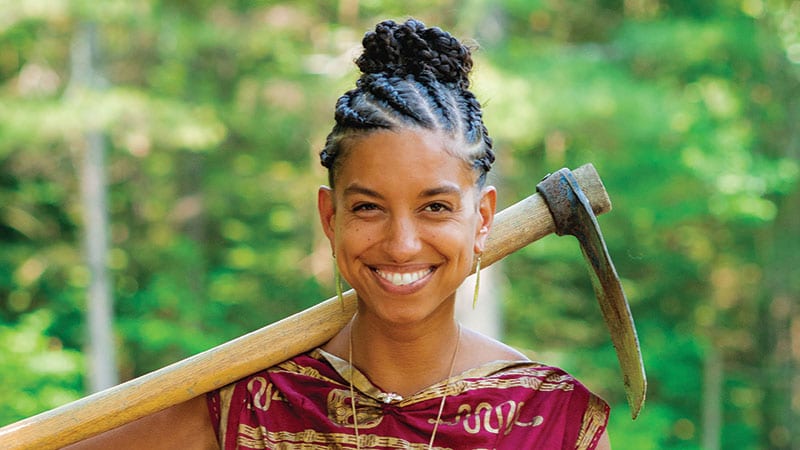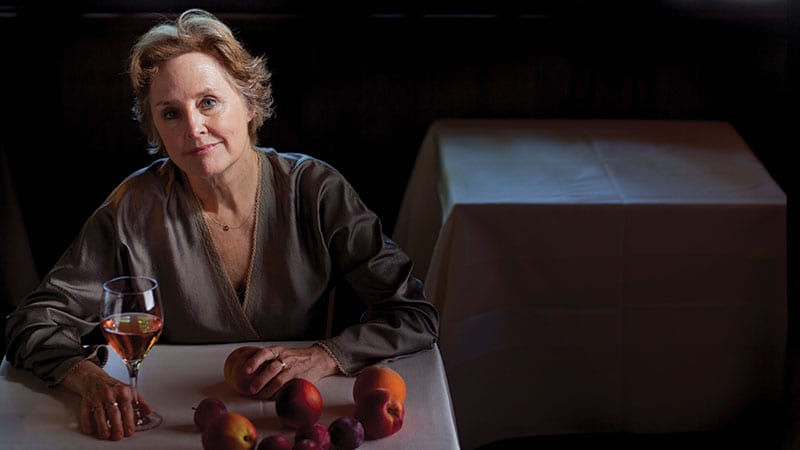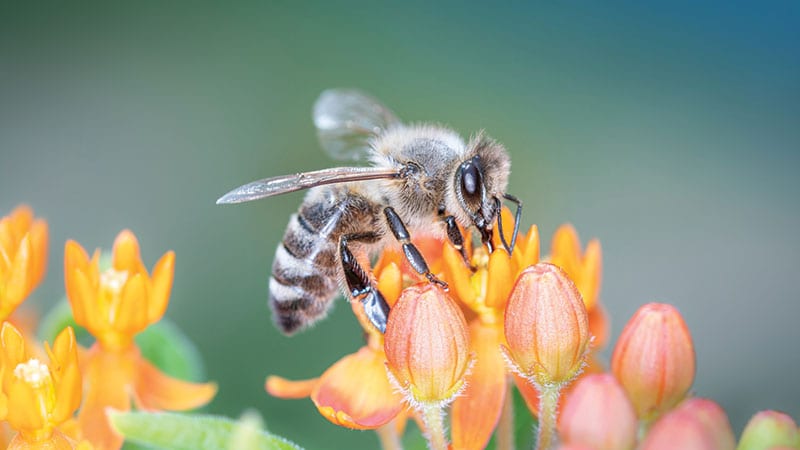Different generations, different heroes: Alice Waters and Leah Penniman debate how to create a better world
This article was originally published in July 2021

In California 50 years ago, Alice Waters opened Chez Panisse restaurant and ushered in an era of national support for local, sustainable and organically grown foods. A quarter-century later, she founded the Edible Schoolyard Project, transforming children’s relationships with food and seeding some 5,000 programs nationwide linking gardens, kids and kitchens.
In New York 11 years ago, Leah Penniman co-founded Soul Fire Farm, feeding an underserved community and leading anti-racism education and advocacy work for food sovereignty throughout the U.S. In 2018 she wrote “Farming While Black,” a mix of manual, textbook and history that’s helped change the national narrative about the face of farming.
Earlier this year, the two changemakers debated the question, “What Can We Do?” as part of a symposium sponsored by the Real Organic Project (ROP), a nonprofit dedicated to increasing understanding of foundational organic goals and principles (see our article in the Sound Consumer). They spoke with ROP Executive Director Dave Chapman at the virtual five-session gathering of farmers, scientists and climate activists. A condensed, edited version of their conversation is below; for more information visit realorganicproject.org.
Dave Chapman: I was just talking with Alice, Leah, about how there’s no resolution to climate change without also addressing social justice—but they’re intimately bound together. My first question: Do you agree with that?
Leah Penniman: Absolutely. Climate change and social justice are intimately integrated; for one, because the people most impacted by climate change are our frontline communities. Black and brown communities are the ones who are doing the work on farms, in the heat waves, the ones who are directly impacted by hurricanes, by wildfire and other natural disasters. Additionally, these frontline communities are also the ones who have the expertise and the motivation to solve the climate crisis. We got regenerative agriculture from Black and brown communities, right? Survey results show that, more than white communities, Black and brown folks are committed to solving the climate crisis. We simply can’t do it if we don’t do it all together. And because climate change does have disparate impacts on people based on class and geography and race, we cannot fully understand the problem if we see it purely as an environmental or consumer problem.
DC: Alice, what do you think?
Alice Waters: I agree and (believe) it’s public education that could best educate and teach the values that we need to live on this planet together. So if you begin in kindergarten and we decide to buy the food from people who are taking care of the land—Black and brown, smaller, bigger, but people that are committed to the values of stewardship and regenerative agriculture—what happens is that those values sort of come through the cafeteria door. And if we really begin in kindergarten and bring children around the table, and we cook their first (plates) of food from all different cultures, we immediately begin to address social justice.
DC: Leah, what do you think? Is that an obvious leverage point, to go into the school system?
LP: Well, my framework on social and environmental change is based in this beautiful visual that my daughter created for the four wings of transformative social justice. Imagine a butterfly with four winglets. One of them is “Resist,” it has to do with the boycotts and protests and strikes and walkouts resisting oppression. Another one of those winglets is for “Reform,” which has to do with policy change, working within the system: the school systems, legislative system, halls of Congress. The third is “Build,” which has to do with creating alternative institutions: co-ops, land trusts, farms, freedom schools. And the final wing is “Heal.” This refers to healing from the centuries of land-based trauma and oppression through ritual, ceremony, transformative justice, conflict, resolution, art.
A butterfly cannot fly without all four of its winglets. So is there a place to start in kindergarten, to teach children about gardening, about cooking, about the fellowship and camaraderie that comes with sitting around the table together and slowing down and appreciating aroma and culture, yes. And I (also) stand with the actions of the movement for Black lives. I stand with the actions of the farmers themselves, driving their tractors on to the mall in D.C. With the therapists so we’re helping people deal with their trauma so they don’t act it out on one another, right? With the legislators pushing for the Justice for Black Farmers Act, the Green New Deal. I think that we need to have a multiplicity of strategies to make comprehensive social change.
DC: This has actually been one of the big topics of the symposium. These (approaches) are not opposed, but some people really favor personal action, in terms of, “What do I eat? What’s my personal economy?” When I interviewed you, Leah, I said, “You could have just been a farmer, and you could have just sold really good food to a community that needed it and that would be a wonderful thing, but almost unwillingly, you became an educator.” And I think to some degree, Alice, that’s similar for you, too. You were trying to start a restaurant and somehow that restaurant became part of a tidal wave of change that involved restaurants all across the country and those restaurants are buying from local farmers. So, again, huge changes in the system. You could run a restaurant and it could be completely apolitical and you could be even disinterested in the system and the education system.

AW: Every action that we have, it’s political. It has consequences. Yes, you can decide to eat from this farmer who is not taking care of the land. Or you could eat food over here from somebody who is supporting people who are doing the right thing. That’s a very political decision that everybody can make, if they’re lucky, every day. And I’m convinced that it really works to win people over by taste, to engage them, (to offer) that part that they can’t resist rather than to preach to them. It’s very hard to tell somebody to like somebody else. You have to give them a reason. If we build a school system that is dependent on the farmers and the ranchers and the fishers, the people who make tortillas, all of the people who provide food…if they become connected to the schools and the kids meet those people, you’re making a circumstance where children can find the pleasure of sharing, where they can see the beauty of ripe food, where they can taste it. I feel so often that we live in a fast food culture that is separating us and (promotes) a whole system of greed, teaching us the values that “more is better” and “I want what I want when I want, and it’s not for you,” and “these people are preventing me from getting that.” It’s all against this connection.
DC: I want to talk about that, because I think that’s very important, culture and cultural shift and what that means. But I want to go back because I think there are different points of view in what I asked, and they don’t need to be antagonistic. It’s like, “We’ll choose to do the work that we see.” Leah, do you see your work as being different from Alice’s vision? What is your vision?
AW: I do want to know if you think what you’re talking about is really different than what I’m talking about, because I don’t feel that way.
LP: We certainly cook with children. And I think that it’s inescapable that whenever societal change is needed you have a component of relationship, because we defend and protect what we love and know. If we don’t know anything about the land we squander it, if we don’t know anything about good food we don’t value it, if we don’t know human beings who are different from us than we won’t care for them. At the same time, kindness and relationships, I do not believe these are enough to correct injustice. This is not a problem of kindness, right? This is a problem of systemic racism, and you need to have policies and practices in place to give land back, to pay reparations, to change policies. What motivates a legislator to care—other than fear of not being reelected—is probably a moment of connection, a moment of relationship. So those things go hand in hand. But what I caution against is folks who believe that just by buying organic or just by sharing muffins with my neighbor, I’ve done my part. There’s more to it than that.
DC: Alice, does that answer your question?
AW: It does, but I want to believe that the public school system could be that engine for change. If they purchased all of the food from people who took care of the land, and purposely chose farmers that were Black and brown, and ensured that everyone had to have good (policies) taking care of farm workers, and that would be part of what would allow you to be a vendor for the public school system, they could choose who they wanted to support. I think that could be an amazing way to bring all of the values into the public school system. And I think when you talk about a diversity of foods and cultures, in a way you’re beginning to appreciate another culture.

DC: One of the great trump cards that industrial agriculture plays in America is in the debate around hydroponics and organic, and the same is true for CAFOs and organic, and saying “We’re making organic affordable for everyone, everyone deserves organic.” And of course what they describe by that is not what I mean by organic, but somehow they’re trying to pit small farmers against people who don’t have access to money and make it seem like that’s the choice. What do you say to that? It’s a complicated conversation, it really is.
LP: These are systemic issues, right? Because of course, to put the agency in the hands of the farmer to fix the food system is really myopic. We have to look at—and Alice speaks to this a bit—where are the funds coming in to make these good choices? How do we strengthen our certifications to enforce those good choices? We just got certified through the Agricultural Justice Project to make sure that workers rights are enforced. I look at models like Costa Rica where they figured out that instead of using their government subsidies to pay farmers to trash the planet and human health, they flip it, kind of like our Environmental Quality Incentives Program, which is a tiny underfunded little part of the U.S. Department of Agriculture (USDA). It was completely flipped so you actually got a reasonable stipend for all of the ecological services that you preserve and enhance on your farm, because this is the public trust, right? If I’m sequestering 50,000 pounds of carbon on my little farm every year, that is a benefit to all of society. I think in the U.S. we should do this, where you get a stipend for demonstrating that you have sequestered that carbon, if you create habitat for pollinators, or threatened or endangered species, that is enhancing the public trust. If you have areas for aquifer recharge, because you haven’t paved them over or destroyed them or let them wear so they would erode, that is a public service. I think if we really think about what we’re using our tax dollars to pay for, right now we’re using our tax dollars to subsidize destruction of the planet. And there are ways to flip it to make small-scale farming economically viable, so that farmers can figure out how to pay fair wages, engage with community programs that have lower price points, etc. But it’s not the farmers’ fault, it really is a societal problem.
AW: Perfect. Well said.
DC: You both have been cultural influencers. Is there a place in particular that you go, “this is where I think we can influence culture?”
AW: I always go to the public school system. Always. If we change that, we change the way that we’re teaching children and feeding them, we can change the world. And they need to be loved in school and need to be really cared for.
DC: Leah, do you have a place that you feel is most important that your voice be heard, a community, an arena?
LP: Well, to answer your question you posed originally about cultural shifts, I definitely appreciate what Alice is saying about children. I would add to that something that was shared with me by Audrey Peterman in a recent conversation, which is really powerful: We were talking about the Earth as primary source, and how for most of human evolution we got a whole lot of information directly from the Earth. We look at the sky to know what the weather will be and when it’s time to plant or not, look to the stars for directionality, you look to the behavior of animals (to see) now there’s danger coming. And as we march along in time, increasingly, we get our information from other human beings, sometimes filtered through many, many voices in a dangerous game of telephone. And now we see ourselves in 2020, 2021, where fake news is nearly impossible to differentiate from truth. It’s made me curious about what it would look like to train ourselves and our children to read the Earth as a primary source and to get out of the game of telephone. I think there’s a lot of wisdom that comes from the land, the waters, the sky, the stars, about what it is to be a being in right relationship with everything else, and all the time we spend on our devices and in our echo chambers, makes it very, very hard for us to discern what is true and real.
DC: That might be the place we should end this conversation. I think that was pretty good. Leah Penniman and Alice Waters, thank you very much for coming together today.
